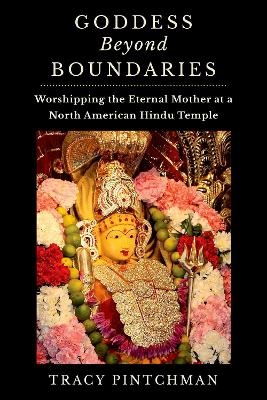
The Oxford Handbook of Caste
Oxford University Press (Verlag)
978-0-19-889671-5 (ISBN)
Beginning with the 1990s, the subject of caste has seen a profound increase in interest among scholars. What was until then approached as a fossilized tradition of the ritual-obsessed Hindus refusing to see the progressive spirits of the emerging world and studied as a branch of anthropology, suddenly began to be seen as a complex reality deeply embedded in a range of institutions and social practices, attracting scholars from a wide range of disciplines--sociology, political science, history, literature, and even economics. Underlying this opening of the subject of caste were many factors: epistemic, empirical, and political. Caste is no longer approached through the classical binaries of 'traditional' and 'modern'; the 'East' and the 'West'; or the 'closed' and 'open' systems of stratification. With the growing consolidation of caste-based identities among those ranked lower down in the hierarchy since the 1990s, raising questions of citizenship and dignity, the subject has acquired a new salience. As the emerging research shows, the realities of caste on the ground have always been diverse across regions, often contested and ever changing. This Handbook presents a wide range of essays written by authors representing diverse academic disciplines and perspectives, bringing together the emerging trends in the research, imaginations, and lived realities of caste.
Surinder S. Jodhka is a Professor of Sociology at the Jawaharlal Nehru University, New Delhi. His recent publications include India's Villages in the 21st Century: Revisits and Revisions (co-edited with Edward Simpson, OUP, 2019); Mapping the Elite: Power, Privilege, and Inequality (co-edited with Jules Naudet, OUP, 2019); A Handbook of Rural India (Orient Blackswan, 2018); Contested Hierarchies, Persisting Influence: Caste and Power in Twenty-First Century India (co-edited with James Manor, Orient Blackswan, 2018); Inequality in Capitalist Societies (co-authored with Boike Rehbien and Jesse Souza, Routledge, 2018); The Indian Middle-Class (co-authored with Aseem Prakash, OUP, 2016); Caste in Contemporary India (Routledge, 2015/2018); and Caste: Oxford India Short Introductions (OUP, 2012). He is among the first recipients of the ICSSR-Amartya Sen Award for Distinguished Social Scientists for the year 2012. Jules Naudet is a CNRS Associate Research Professor at the Center for South Asian Studies, EHESS, Paris, and a CASBS Fellow at Stanford University (2021-2022). He has authored Stepping into the Elite (OUP, 2018), which revisits the classical question of the experience of moving from one class to another, co-edited Justifier l'ordre social (with Christophe Jaffrelot; University Press of France, 2013), and co-authored Ce que les riches pensent des pauvres (with Serge Paugam, Bruno Cousin, and Camila Giorgetti; Le Seuil, 2017), a comparative analysis of the representations of the poor by the inhabitants of upper-class neighbourhoods in Paris, Delhi, and São Paulo. Naudet is a member of the editorial board of SAMAJ (South Asia Multidisciplinary Academic Journal) and the co-editor-in-chief of La Vie des Idées/ Books & Ideas, an online journal hosted by the Collège de France. He co-edits the book series Exploring India's Elite with Surinder S. Jodhka.
| Erscheinungsdatum | 24.10.2023 |
|---|---|
| Verlagsort | Oxford |
| Sprache | englisch |
| Maße | 175 x 251 mm |
| Gewicht | 1346 g |
| Themenwelt | Geisteswissenschaften ► Religion / Theologie ► Hinduismus |
| Sozialwissenschaften ► Ethnologie ► Volkskunde | |
| Sozialwissenschaften ► Soziologie | |
| ISBN-10 | 0-19-889671-9 / 0198896719 |
| ISBN-13 | 978-0-19-889671-5 / 9780198896715 |
| Zustand | Neuware |
| Haben Sie eine Frage zum Produkt? |
aus dem Bereich


